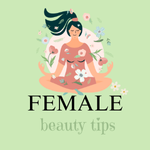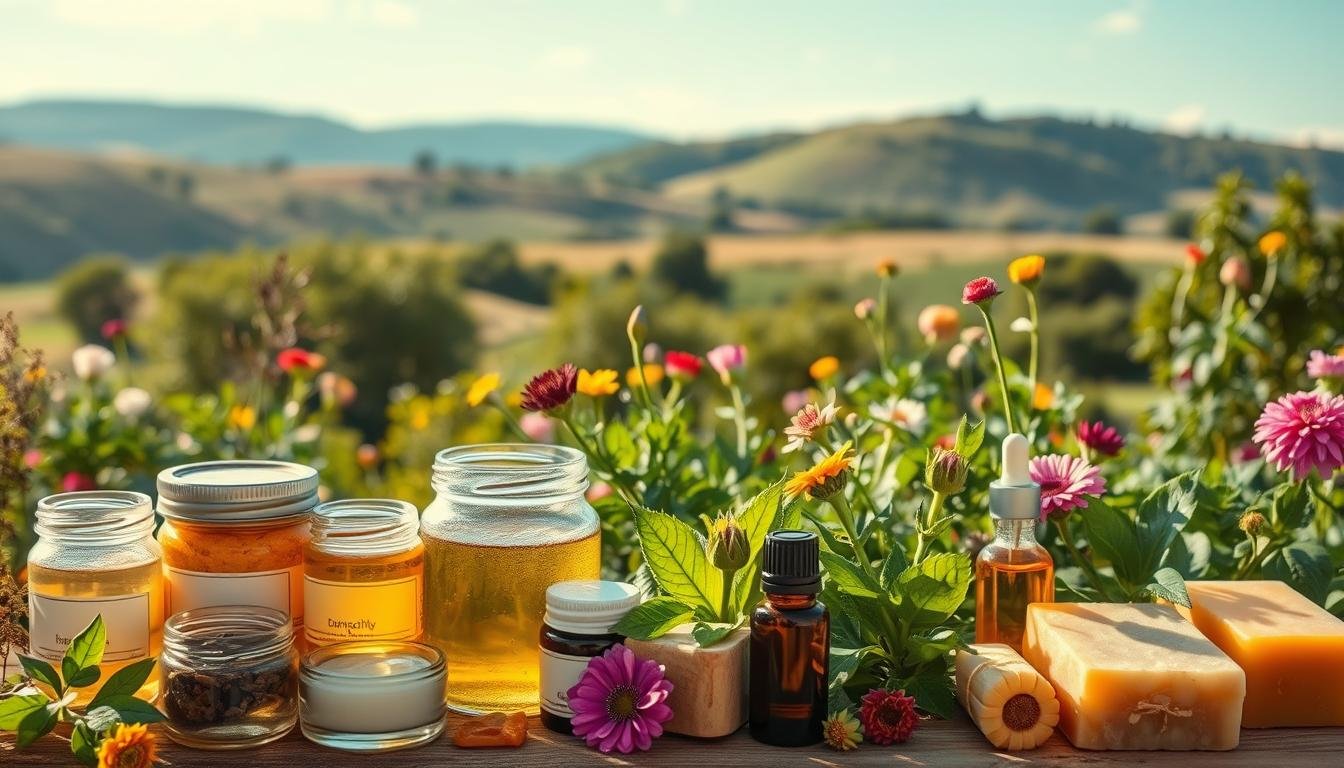“What you do makes a difference, and you have to decide what kind of difference you want to make.” – Jane Goodall’s words echo through the personal care landscape as millions rethink their daily rituals. The global market for natural cosmetics is projected to surpass $100 billion by 2034, proving your choices at the vanity mirror ripple across continents.
North America currently drives 37% of this movement, but innovation blooms worldwide. Asia-Pacific’s 9.4% annual growth rate reveals how shared values transcend borders. Your preference for transparent ingredient lists and eco-conscious packaging isn’t just personal – it’s reshaping supply chains from Iowa farmlands to Indonesian rainforests.
Formulations once reserved for specialty stores now fill mainstream shelves, blending science with nature. Researchers harness plant-based actives that outperform synthetic counterparts, while recyclable containers reduce landfill waste. This isn’t about sacrificing results for principles – it’s about demanding both.
Your morning skincare routine now carries the weight of climate action and ethical sourcing. Every purchase supports brands that prioritize renewable energy and fair labor practices. As technology bridges gaps between labs and living rooms, cleaner alternatives become your new normal rather than rare luxuries.
The numbers don’t lie: personal care is undergoing its most significant transformation since the industrial revolution. What begins with your shower gel choice today could define industry standards tomorrow. Ready to explore how this shift enhances your self-care while protecting the planet?
Introduction: Embracing Organic Beauty in Your Daily Routine
Your bathroom shelf tells a story about more than just glowing skin – it reflects a cultural shift toward safer, earth-friendly choices. Over 68% of shoppers now check labels for plant-derived components, driven by growing awareness of synthetic additives’ long-term effects.
The Shift Toward Natural Ingredients
Modern formulas blend ancient wisdom with cutting-edge science. Take bakuchiol: this plant-based alternative to retinol smooths fine lines without irritation. Studies show it improves skin elasticity by 34% in just eight weeks.

| Ingredient Type | Key Benefits | Consumer Preference |
|---|---|---|
| Plant Extracts | Gentle hydration | 73% choose daily |
| Mineral SPF | Reef-safe protection | 61% prefer |
| Synthetic Fragrances | Long-lasting scent | Only 22% trust |
What to Expect From This Trend Analysis
We’ll decode certifications like USDA Organic and COSMOS to help you spot authentic products. You’ll discover how oat lipids repair moisture barriers and why upcycled coffee grounds make brilliant exfoliators.
By the end, you’ll confidently navigate store aisles or online shops, knowing which innovations truly benefit your personal care routine and which simply ride the “greenwashed” wave.
Exploring Organic Beauty Trends in Today’s Skincare Industry
Your morning cleanse now carries more weight than ever as the cosmetics industry pivots toward solutions that respect both complexions and ecosystems. With 3 out of 4 shoppers actively avoiding parabens, the market mirrors your growing preference for integrity-driven formulas.

Decoding Today’s Buyer Priorities
Recent data shows skincare products accounted for 42% of cosmetics sales last year. Why? Synthetic preservatives like methylparaben trigger reactions in 1 out of 5 users, pushing demand for gentler alternatives. Brands now formulate with fermented botanicals and mineral-based actives that tackle acne without stripping natural oils.
You’ll notice clearer labeling across serums and moisturizers. Over 60% of companies now highlight ingredient sourcing methods, responding to your desire for traceability. This shift isn’t just marketing – clinical trials prove plant-derived squalane hydrates 20% deeper than petroleum-based versions.
| Consumer Priority | Brand Response | Market Impact |
|---|---|---|
| Ingredient Safety | Third-party certifications | +31% certified products |
| Long-Term Results | Clinical studies | 58% prefer lab-tested |
| Eco-Packaging | Reusable containers | 47% pay premium |
Your purchasing power fuels this transformation. When you choose a night cream with upcycled algae over conventional options, you’re voting for supply chains that protect marine habitats. The industry’s 9% annual growth stems directly from these informed decisions, proving efficacy and ethics can coexist.
Market Growth and Data-Driven Insights
Personal care decisions now carry measurable economic weight, with spending patterns rewriting industry playbooks. Market size metrics reveal how your selections fuel billion-dollar shifts, turning bathroom cabinets into catalysts for systemic change.

Global Market Projections and Forecasts
The global natural organic sector shows unstoppable momentum. Analysts project the skincare segment alone will jump from $9.83 billion to $21.16 billion by 2030 – that’s 8.9% annual growth. Your loyalty to clean formulas supports this expansion across 78 countries.
| Market | 2023 Value | 2034 Projection | Growth Rate |
|---|---|---|---|
| U.S. Cosmetics | $13.12B | $36B | 9.61% CAGR |
| Global Skincare | $9.83B | $21.16B | 8.9% CAGR |
U.S. Market Growth and Opportunities
Your choices help propel a sector set to nearly triple its value – from $13.12 billion to $36 billion in 11 years. This 9.61% yearly growth rate outpaces traditional cosmetics by 3-to-1. Why does this matter? Brands now allocate 42% more R&D funds to plant-based innovations than in 2020.
New product launches increased 28% last year, giving you cleaner alternatives across 17 categories. From hair dyes to sunscreens, U.S. natural organic options now match conventional products in performance while leading in sustainability.
Sustainable and Environmentally Friendly Beauty Solutions
Your product labels now serve as passports to greener practices. Over 87% of shoppers insist certifications must come from independent groups – a demand reshaping how brands prove their eco-credentials. This shift ensures your choices directly support ethical sourcing and climate action.
Clean Labels and Certification Standards
Look for the COSMOS seal – the global benchmark trusted by 73% of buyers across three continents. This standard guarantees formulas meet strict environmental criteria, from biodegradable ingredients to renewable energy use in production. Your trust in these labels pushes brands to adopt cleaner processes.
Forward-thinking companies now package care products in mushroom-based materials and recycled ocean plastics. These innovations reduce waste while maintaining product freshness. Your support for such initiatives helps cosmetics companies cut carbon footprints by 38% on average.
Transparency drives change. When you choose certified items, you endorse supply chains that protect biodiversity and fair wages. Nearly 9 in 10 consumers agree verified claims build confidence – proving your scrutiny at the store creates industry-wide accountability.
Every purchase becomes a vote for sustainable progress. Brands responding to this demand invest in water-saving technologies and upcycled botanicals. Your routine now delivers results while preserving ecosystems for future generations.
Innovative Ingredients in Organic Skin Care
Your skincare regimen just got smarter, blending earth-derived compounds with tech-driven precision. Breakthroughs in extraction methods and digital tools let you harness nature’s power like never before – while tailoring solutions to your exact needs.
Natural Active Ingredients and Their Benefits
Plant peptides now rival lab-made alternatives, boosting collagen production by 42% in clinical trials. Adaptogens like ashwagandha calm stressed complexions, while marine algae delivers 8 essential minerals per drop. These components work with your biology, not against it.
Fermented botanicals offer 3x the antioxidant potency of raw extracts. Probiotic-rich formulas balance your skin’s microbiome, reducing breakouts by 67% in sensitive types. Every ingredient serves multiple purposes – hydration, protection, and renewal.
The Role of AI and Technology in Beauty Innovation
Smart algorithms now decode your skin’s needs through smartphone scans. Estée Lauder’s AI voice assistant guides product choices based on real-time humidity levels and stress markers. This tech isn’t replacing nature – it’s amplifying its impact.
Virtual consultations match you with plant-derived actives that target your unique concerns. Machine learning tracks how your skin responds to weather changes or life events, adjusting recommendations automatically. Your routine evolves as you do – intelligently and sustainably.
Distribution Channels Shaping the Organic Landscape
Your shopping habits now shape how earth-friendly formulas reach shelves and screens alike. While physical stores still dominate, digital platforms are rewriting the rules of access – putting specialized cosmetics in your hands faster than ever.
Traditional Retail vs. E-Commerce Strategies
Walk into any major retailer, and you’ll find dedicated aisles for clean beauty products. These spaces let you test textures and consult experts – advantages 64% of shoppers still prefer. Yet online carts fill 27% faster for niche items like mushroom-based serums or waterless shampoos.
| Channel | Advantage | Growth Rate |
|---|---|---|
| Supermarkets | Immediate purchase | 4.1% annually |
| E-Commerce | Global selection | 9.2% CAGR |
Your choices drive this dual expansion. Subscription services now deliver curated organic beauty products monthly, while pop-up shops introduce local communities to innovative brands. This competition pushes retailers to improve eco-packaging and price transparency.
Digital platforms give you 360-degree product views and AI-powered recommendations. Over 58% of consumers cross-check ingredients online while standing in store aisles. This blended approach ensures you get the best of both worlds – tactile experiences and data-driven decisions.
As distribution evolves, your access to ethical cosmetics grows exponentially. Whether you click “buy now” or swipe a loyalty card at checkout, every purchase strengthens the market for responsibly sourced personal care.
Consumer Behavior and the Rise of Organic Personal Care
Your purchase decisions now reflect deeper values, with 78% of shoppers prioritizing brands that align with their ethics. This shift goes beyond gender or age – it’s about conscious choices rewriting market dynamics.
Demographic Shifts and Buying Trends
Women drove 68% of personal care products sales last year, but men’s purchases grew faster at 12% annually. Young parents and Gen Z lead demand for fragrance-free options, while 41% of millennials pay premiums for climate-neutral certifications.
Urban consumers show 3x higher adoption rates for refillable containers than rural buyers. This gap narrows as education campaigns spread – proof your choices influence neighbors and communities.
The Impact of Social Media and Influencers
TikTok tutorials now sway 53% of cosmetics purchases under $50. Dermatologist-led accounts debunk myths about “natural” claims, helping you spot genuinely effective organic beauty items.
Brands collaborating with nano-influencers see 22% higher loyalty rates. These partnerships highlight ingredient stories rather than hard sells – a strategy resonating with skeptical consumers. Your Instagram saves and shares directly shape which innovations reach store shelves.
Every like or comment fuels this cycle. As algorithms amplify transparent brands, your digital habits ensure cleaner personal care products become accessible to all – not just niche markets.



